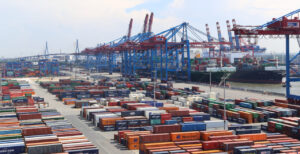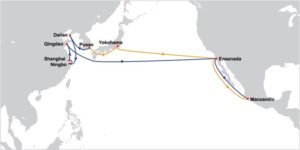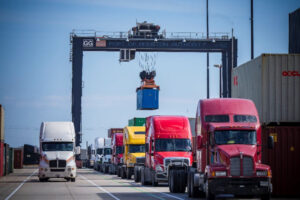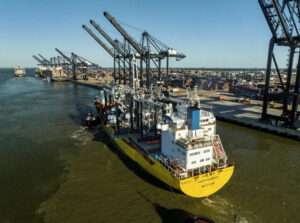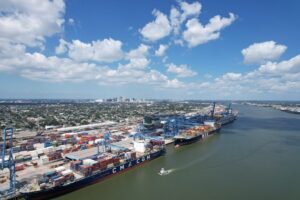The Port of Long Beach has officially joined the SEA-LNG coalition, a global initiative to promote the use of liquified natural gas (LNG) in the maritime industry.
It has become the third port in the US to join SEA-LNG, which now has seven of the world’s top twenty ports as members.
In a statement, Peter Keller, Chairman, SEA-LNG, said: “The Port of Long Beach’s leadership team is highly respected in the industry for its progressive approach to serving its stakeholders, and I am delighted that we will be working closely with them to promote LNG as a marine fuel.
“LNG continues to be the best option to improve living standards while minimising impacts on the environment.
“Ports are critical links in the bunker supply chain and we are excited that the Port of Long Beach has joined the coalition to drive forward our vision of a competitive global LNG value chain for a cleaner maritime shipping towards 2050.”
Long Beach is the second busiest port in the US after Los Angeles and is situated on major trade lanes connecting Asia, North America, Europe and the Middle East.
It has made dramatic reductions to its local NOx, SOx and diesel particulate emissions since 2005. Its Green Ship Incentive Programme — established as part of the Clean Air Action Plan in collaboration with the Port of Los Angeles — offers financial incentives for ships with the newest engines or an equivalent NOx-reducing technology.
“We are known in the trans-Pacific trade for our top-notch customer service and being responsive to the needs of our business partners,” said Port of Long Beach Executive Director Mario Cordero.
“Allying with groups like SEA-LNG is part of being ready for the market’s growing demand for LNG fuel. It also meshes with our strategic goals to strengthen competitiveness while improving environmental sustainability.”
Boosting LNG-fuelled shipping accelerates this progress. LNG boasts unrivalled emissions credentials, cutting SOx and particulate emissions to negligible amounts and reducing NOx by around 85%.
It also generates significant reductions in greenhouse gas emissions today, while also presenting a pathway towards decarbonisation for the shipping industry through the adoption of bio and synthetic methane.

